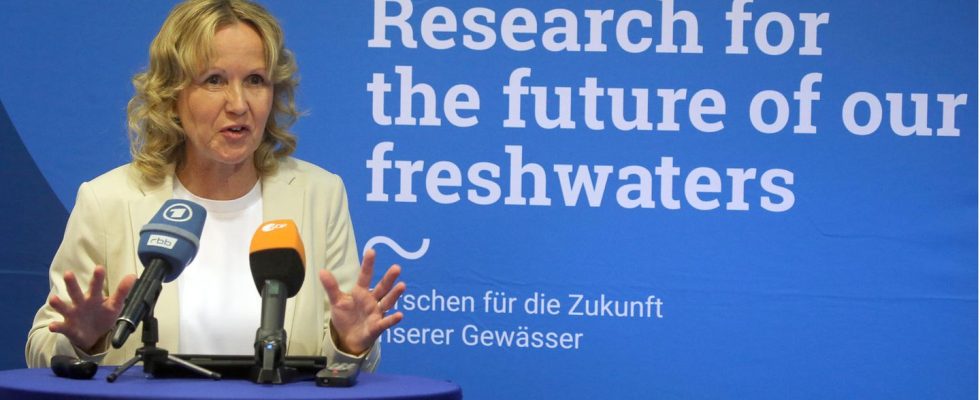Heat protection in cities
“We still have to learn how to deal with water” – Federal Environment Minister calls for savings
Federal Environment Minister Steffi Lemke advocates saving water
© Wolfgang Kumm / DPA
Water is scarce and will become a scarcer commodity – also in Germany. The Federal Environment Minister is therefore calling for water saving and is not only admonishing the industry.
In view of increasing water scarcity, Federal Environment Minister Steffi Lemke (Green Party) called for water to be used sparingly. In an interview with the Berlin “Tagesspiegel” she criticized the heavy sealing of the cities. In urban planning, “too little attention was paid to keeping and storing water in the cities”. Above all, sewage systems were built to drain the water quickly.
The construction of roads has also been more important than heat protection for the population. In view of the climate crisis, she called for a rethink. “More green, less concrete, that’s the city of the future,” she said.
Supply of drinking water has “absolute priority”
She described the fact that the first municipalities are now banning the irrigation of gardens during the day as an “absolutely sensible measure”, which the municipalities would have to decide for themselves. “We still have a lot more to learn to be careful with water,” she said. Industry and the energy sector also need a rethink.
“Nevertheless, we should also save in the private sector and think about using gray water,” Lemke demanded. In times of water scarcity, supplying the population with drinking water has “absolute priority”.
She would advise pool owners “to go into the wonderful nature and use our bathing waters, which we still have in Germany with very good water quality,” Lemke told the “Tagesspiegel”. Individual municipalities have already decided to ban the filling of pools in the heat and long drought. She left open whether it still made sense to build pools, but said it “also depends on whether there are large industrial consumers in the region”.

